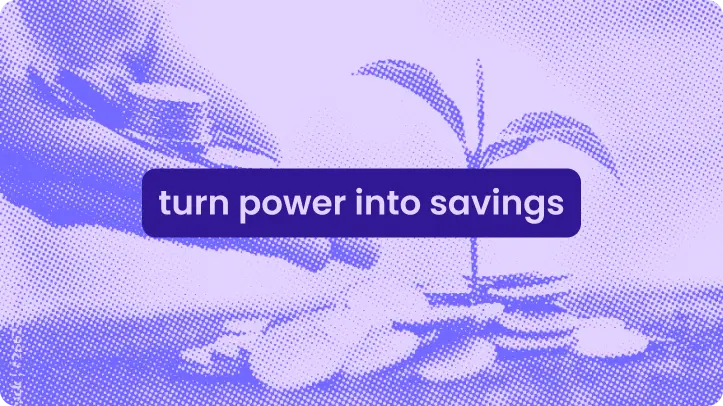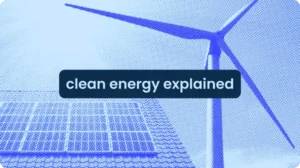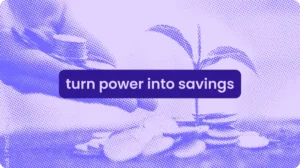Why Solar?
Climate change is often brought up as reason to why we need a transition to clean energy such as solar and wind. The problem here is that, the conversation around climate change has ended up being heated (pun intended) and politically polarizing.
Here is the thing though; even if we brush aside the collapsing climate argument, there is a large gaping hole in the defense of fossil fuels → They are non-renewable fuels. And the thing with non-renewables are….. they are not renewable. Eventually, we are definitely going to run out of it (after all, the whole point of calling it non-renewable is because of its quantifiable limits in availability).
Which means if we keep it business as usual, its going to be increasingly expensive to get these fuels and eventually reaches a breaking point where the economy collapses.
So that’s the problem; a warming planet or not, we need to get off fossil fuels before we crash onto an economic wall. And the key component to making this transition possible is → Solar.
Unlike dead dinosaurs remains, the sun is an infinite and powerful source of energy. Beyond savings on power bills, going solar is a financially positive decision that has major positive climate impact. Below are some ways how going solar can be beneficial for you
- To solve the problem of warming planet, transition from fossil fuels to non-renewable energy resources like solar energy are beneficial
- Benefits of solar energy-
- Solar gives great returns & value on investment
- Solar increase value of your house
- Solar helps our community with clean energy access
- Solar is non-renewable & pollution free source of energy
- Solar provides green jobs
- Solar helps in reducing the carbon footprint </aside>Solar makes financial sense
1. Solar makes financial sense
Solar pays for itself
One of the many benefits of going solar is the great value for buck users get out of it. Adding solar can significantly offset your power bill. Furthermore, the cost of going solar has reduced by 70% within the last decade. With both these facts combined, going solar makes for a pretty solid investment case. The average Indian homeowner pays off their solar panel system in around 7 to 8 years and sees an ROI of 20% for the rest of the 20 to 25-year lifespan of the system.
But what if you can’t install your solar panels? Maybe you don’t own your home or have a shade-free roof space otherwise, you don’t want to commit to the upfront capital required. There are still ways to enjoy the financial benefits of solar power. In many countries, you could join a solar farm through a community solar program where clean solar energy from the project flows into your local power supply on your behalf. In India, you could reserve Digital Solar to get credits to save up on your power bill. (Link to homepage)
Solar increases your home value
For those who could install panels, saving money on your power bill isn’t the only real financial advantage that solar panels offer. They’ll also increase the price of your home. Various studies have found that properties furnished with solar power systems have a higher worth and sell more rapidly. Evaluators are thinking about introducing solar power systems to build the worth of homes while selling them. As homebuyers are becoming more knowledgeable about the advantages of solar power, the interest for properties fitted with solar systems will keep on developing.
2. Solar helps our communities
Energy access and resilience
With a changing climate comes more frequent, erratic weather events such as hurricanes, floods and wildfires. These events threaten the stability of the grid to deliver constant power, especially at a time when power is crucial for medical assistance and communication. Solar coupled with battery storage at an independent home level or as a micro-grid at a community level enables a safety blanket on power availability when the grid is down.
Furthermore, micro-girds enable the delivery of power to places far or uneconomical (such as remote terrains or tribal areas) for the power lines of the grid to service, making power a fundamental resource for the progress of people everywhere.
It’s pollution-free
Apart from emitting CO2 and other greenhouse gases into the atmosphere, burning fossil fuels also generates particulate matter (PM), a mix of solid particles and liquid droplets found within the air. This soot penetrates deeply within the lungs and is expounded to a spread of health concerns, including disorder, respiratory issues, carcinoma, and adverse birth outcomes. Since the creation of solar energy doesn’t produce any pollution, it could be introduced in metropolitan and suburban regions; essentially closer to the source of consumption of power, thus reducing loss while in transmission, all while without affecting the health and well-being of the community around these solar installations.
Solar provides ‘‘green jobs’’
Beyond clean power, going solar involves several hardware (such as panels and inverters) and services (such as site surveys and cleaning of panels). Therefore, with the rise of demand for solar, we have seen an uptick in employment in good, well-paying, green-collar jobs. According to various observers, the solar industry is rapidly adding jobs to the Indian economy. A workforce of about one million can be employed to take up these green jobs. And this explosion in employment is projected to only increase in the future. The jobs related to solar energy can benefit those with already possessed skill sets in construction, and electrical work, and be more lucrative as these positions can’t be outsourced and hence, can be a significant contributor to the local Indian economy.
Additionally, companies are discovering that “green” credentials are a strong driver in helping a consumer make a purchasing decision, creating goodwill, and growing business results, furthering job creation opportunities in the green-collar domain.
3. Solar power can combat climate change
Solar reduces carbon presence
Going back to where we started, solar has an incredibly outsized role to play in climate action. To put things in perspective, A 10 KW solar panel offsets around 5 metric tons of carbon dioxide; which is the equivalent of emissions from a typical passenger vehicle every year.
You can lower your carbon presence by going solar in three ways;.
- By using power directly from your solar panels, you lower the demand for more carbon-emitting power from the grid.
- When you’re not utilising the power from the panels directly, you’re counterbalancing the requirement for carbon-intensive power by adding your own solar energy onto the grid via net-metering.
- Solar being installed close to the point of consumption means less power is lost due to transmission and distribution via the power lines. Lesser leaked power translates to fewer wastage and emissions.
- Apart from the lack of harmful byproducts in energy generation, The supply chain and maintenance for solar has low carbon presence across its long lifespan compared to other sources such as natural gas and coal.
The Indian Context
Transitioning to clean energy for most mature economies means shutting down their huge part of their current energy infrastructure, which could be a challenge in terms of economic justification as well as the transition of jobs for people who work there, which often leads to political resistance to these transition plans.
However, for countries like India, which are still building out the required energy capacity can leapfrog this and move directly into clean energy infrastructure at a much faster pace. Solar is a great fit for a sunny country like India. By expanding our ability to create electricity from the sun, we can play a huge role not just in avoiding a global catastrophe but also safeguard us from cost fluctuations in energy markets and making us energy independent and resilient.

Conclusion
Going solar in most places is synonymous with the rooftop installation of solar panels. However, roof installations aren’t feasible for those who live as tenants or don’t have shade-free roofspace. This is where digital solar comes into play; instead of installing panels, residents could reserve solar over the internet and link them to their power account to get offsets on their electricity bills. This makes going solar, fast and hassle-free, but more fundamentally, gives everyone the opportunity to participate in the energy transition.







